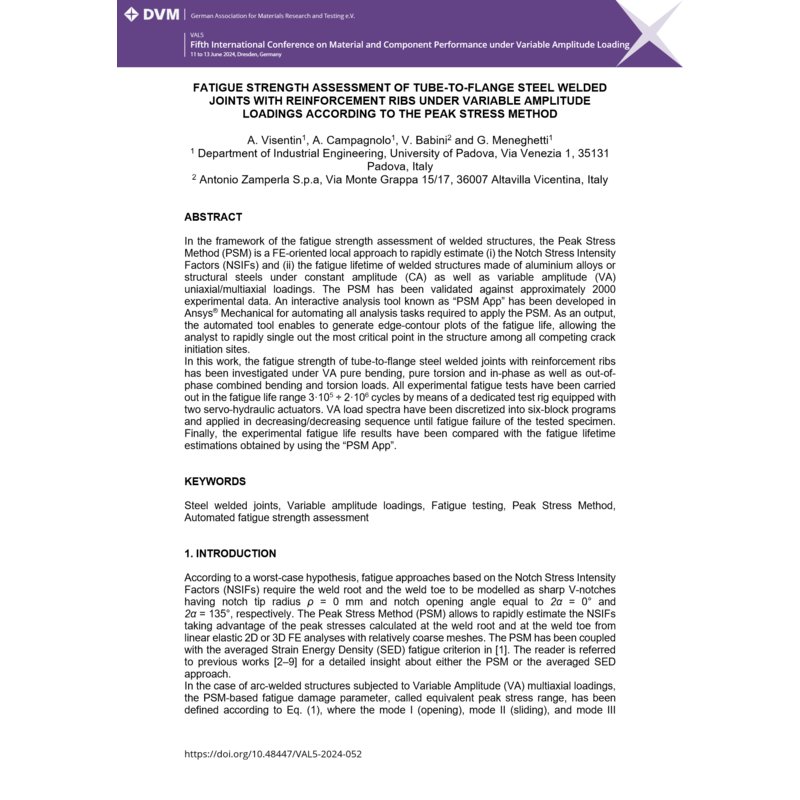- Nur online erhältlich



In the framework of the fatigue strength assessment of welded structures, the Peak Stress Method (PSM) is FE-oriented local approach to rapidly estimate the Notch Stress Intensity Factors (NSIFs) and enables to estimate the fatigue lifetime of welded structures made of aluminium alloys or structural steels under uniaxial/multiaxial constant amplitude (CA) as well as variable amplitude (VA) loadings. The PSM has been validated against about 2000 experimental data. In order to support the FE analyst in the fatigue design of complex un-classified welded joints, an interactive analysis tool known as PSM App has been developed in Ansys® Mechanical for automating all analysis tasks required to apply the PSM. In this work, the fatigue strength of tube-to-flange welded steel joints…

Datenschutzbedingungen (bearbeiten im Modul "Kundenvorteile")

Lieferbedingungen (bearbeiten im Modul "Kundenvorteile")

Rücksendebedingungen (bearbeiten im Modul "Kundenvorteile")
In the framework of the fatigue strength assessment of welded structures, the Peak Stress Method (PSM) is FE-oriented local approach to rapidly estimate the Notch Stress Intensity Factors (NSIFs) and enables to estimate the fatigue lifetime of welded structures made of aluminium alloys or structural steels under uniaxial/multiaxial constant amplitude (CA) as well as variable amplitude (VA) loadings. The PSM has been validated against about 2000 experimental data. In order to support the FE analyst in the fatigue design of complex un-classified welded joints, an interactive analysis tool known as PSM App has been developed in Ansys® Mechanical for automating all analysis tasks required to apply the PSM. In this work, the fatigue strength of tube-to-flange welded steel joints with reinforcement ribs has been experimentally investigated under bending, torsion and in-phase as well as out-of-phase combined bending and torsion VA loads. The specimen consists of a square hollow section (SHS) tube having 80 mm side and 6.3 mm thickness, which is welded to a 15 mm thick flange at both ends. In addition, the tube-flange connections are reinforced by fillet welding 6-mm-thick reinforcement ribs. All experimental fatigue tests have been carried out using a test rig equipped with two 15 kN MTS closed-loop force-controlled servo-hydraulic actuators. The test program involved six series of VA tests in the fatigue life range 3·105 ÷ 5·106 cycles. In this work, a p = 0.5 spectrum has been discretized in 6 steps and applied in decreasing/decreasing sequence until fatigue failure of the tested specimen. Moreover, two additional specimens have been tested under VA random loadings. The experimental fatigue life results have been compared with the location of the crack initiation point and the fatigue lifetime estimated by using the PSM App.